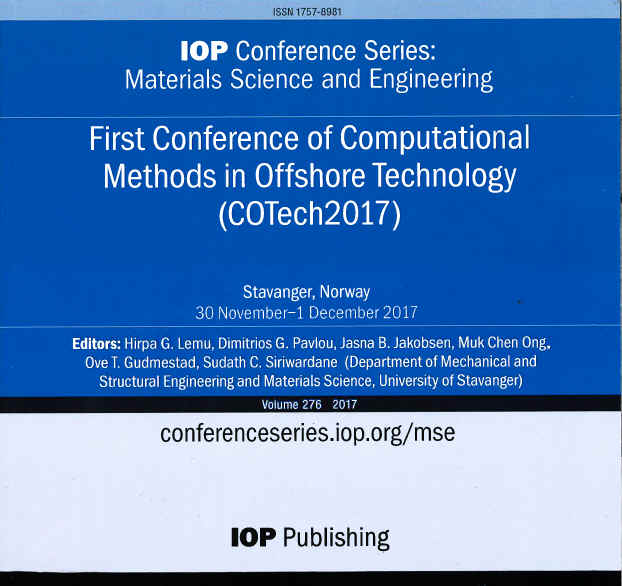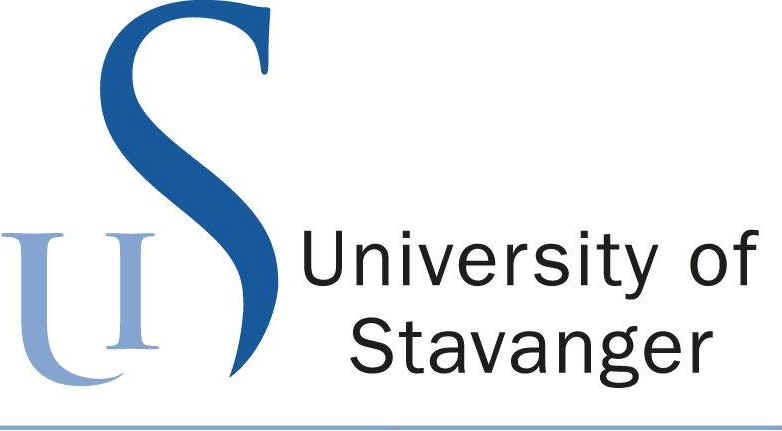|
1.
Wind Engineering
and Industrial aerodynamics
Topic
coordinators:
Assoc. Prof. Charlotte Obhrai (charlotte.obhrai@uis.no)
Assoc. Prof. Knut Erik Giljarhus (knut.e.giljarhus@uis.no)
- Wind
field measurements and modelling
- Wind
effects on long-span bridges and other
civil engineering structures
- Wind turbine loads and wind energy production
- Wind and wave action on floating bridges
and
offshore wind turbines
- Computational wind engineering
- Structural health monitoring of wind
sensitive structures
- Aeroaccoustics
- Aerodynamics of bluff bodies
- Aerodynamics of drones and UAVs
2. Advanced
Computational Methods & Applications in Marine, Subsea and Offshore Technology
Topic
coordinators:
Prof.
Yihan Xing (yihan.xing@uis.no)
Dr. Guang Yin
(guang.yin@uis.no)
- Computational
fluid dynamics (CFD)
- Dynamic
simulation of complex machinery systems
for marine, subsea and
offshore applications
- Fluid-structure
interaction
- Marine technology and operations
- Subsea engineering
- Ocean renewable energy converters
3. Computational mechanics and Structural Integrity
Topic coordinators:
Prof. Dimitrios
Pavlou (dimitrios.g.pavlou@uis.no)
Prof. Sudath C.
Siriwardane
(sasc.siriwardane@uis.no)
and
Dr
Tiago J.
F. Marques Ferradosa, University of Porto
(tferradosa@fe.up.pt)
-
Computational fracture mechanics
- Fatigue and Fatigue-Corrosion interaction
-
Structural Health Monitoring
-
Structural Dynamics
-
Computational Mechanics of Solids and Fluids
(FEM, BEM, FVM)
-
Multi-body dynamics
-
Numerical analysis of FRP materials
-
Mechanical system modelling and simulation
-
Modelling and analysis of discrete event systems
-
Energy convertors (Wind Turbines, Wave Energy
Convertors, ...)
- Steel
Structures, Offshore
Structure Foundations,
- Scour
and Scour Protection,
- Erosion,
Hydraulics, Ports
& Coasts
4.
Structural Safety, Integrity Management and Life Extension
Topic coordinators:
Adj. Prof. Gerhard Ersdal (gerhard.ersdal@uis.no
or
Gerhard.ersdal@ptil.no)
and
Assoc. Prof. Yanyan Sha
(yanyan.sha@uis.no)
- Structural
integrity management
-
Developments
in major hazard-based integrity
management
- Structural health monitoring & sensor
technologies
- Structural
degradation and damage, including
case studies
- Methods for
non-destructive detection of damage
and degradation in structures, particularly
ROV,
AUV and robot-based methods
- Methods for
evaluating damage and degradation
in structures
- Inspection
planning, including probabilistic and
risk methods
- Loads and load
changes to structures, including case studies
- Developments
in wave loading on offshore
structures
- Monitoring
methods for determining loads on
existing structures
- Life-extension
of offshore structures and remaining life predictions
- Strength
of degraded and damaged structural
members
- Nonlinear structural
analysis for assessment of
degraded existing structures
- Fatigue and fracture
mechanics assessment of
existing structures (prediction of remaining
fatigue life)
- Evaluation of corrosion damage and
corrosion
protection
- Fatigue-Corrosion
interaction
- Structural reliability
methods for evaluating and
assessing safety of degraded existing structures
- Repair, retrofitting and
strengthening of existing structures, including:
- Fatigue life enhancement
methods
- Fatigue crack repair
methods
- Composites, adhesives and
resins repair
- Larger scale repair and
strengthening methods
- Repairs of corrosion
protection systems
- Developments in ROV, AUV
and robot-based repair methods
|
5.
Cold Climate Region
Technology
Topic coordinator:
Prof. Ove Tobias
Gudmestad (otgudmestad@gmail.com)
- Changes in the physical environment of
the cold climate region
- Concerns
for the clean environment,
including oil spill
contingency
- Safety
for personnel
- Technical
challenges for cold climate
ship operations
- Technical
challenges for cold climate
facility development
6.
Material,
Corrosion and Battery Technology
Topic
coordinator:
Prof.
Tor
H. Hemmingsen (tor.hemmingsen@uis.no)
-
Pipeline transport of hydrocarbons
- Sour and
sweet corrosion
- Corrosion
inhibition
- Scale inhibtion
- Hydrate
prevention
- Wax and
asphaltene treatment
7.
Smart Operations and Maintenance
Topic
coordinator:
Assoc. Prof.
Idriss El-thalji
(idriss.el-thalji@uis.no)
Prof. Yiliu Liu <yiliu.liu@ntnu.no>
- Reliability
and Maintenance predictions,
e.g. Weibull analysis
- Diagnosis
and Prognosis computations
Spare
parts evaluation and prediction
- Machine
learning for Predictive Maintenance
- Simulation
modelling of maintenance policies
- Model-based
systems engineering for Predictive
Maintenance ready-equipment.
- Digital
twin simulations
- Inspection robots (Movable robots, e.g. drone, ROVs)
- Maintenance
analysis for unmanned installations
- Risk assessment and risk
management
- Safety-critical systems
- Smart operation/maintenance for sustainability
8.
Design Optimization, Additive Manufacturing Technologies & applications
Topic
coordinator:
Prof. Hirpa
Lemu
(hirpa.g.lemu@uis.no)
Prof.
Andrés García Granada
(andres.garcia@iqs.url.edu)
-
Modelling and analysis of additive manufactured parts
-
Design for additive manufacturing
- Topology optimization
- Powder bed fusion metal printing, wire arc
additive
manufacturing of metals, polymer
material printing,
- Additive manufacturing applications in medicine,
aerospace, offshore, energy sector, etc.
- Composite design and natural fiber composites
- Business models, supply chain and digital inventry in
addtive manufacturing industry
9.
Smart
Energy Storage, Integration and Utilization
Topic
coordinator:
Prof.
Mohsen
Assadi (mohsen.Assadi@uis.no)
-
Multivariate hybrid deep learning models,
- Hybrid
PV–MGT cogeneration system,
- Energy
storage efficiency,
- Solar
energy,
- Simulation
and performance prediction of borehole,
- Geothermal CO2-Heat Pumps,
- Heat
exchangers
10.
Industry
Events
Special events
for local industries will be arranged in any of the following forms.
1.
Researchers and development engineers can submit regular scientific
articles for review
2.
Relevant engineering companies can present their achievements, good
practices, new product ideas and the like in relevant sessions. This
option does not need to go through regular review process and will
not be published.
3.
Sponsorship with stand: we can arrange sponsors corner outside the
conference hall.
If
you are interested to participate in any of the above options, please
contact the conference chair at Hirpa.g.lemu@uis.no
or any of the topic area coordinators.
|




